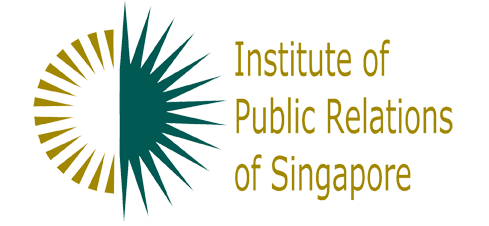IPRS PRISM Summit 2024 - Closing Speech
Closing Speech
Vanessa Wan, Vice President, IPRS
IPRS PRISM Summit 2024
24 October 2024
Wow, what a morning wasn’t it?!
Where did the time go? All too soon, we have reached the last hour or so of the IPRS PRISM Summit 2024. It hasn’t ended yet as we still have our networking lunch.
It has been a power packed morning right from the get-go, with the interesting meanderings by Abel Ang. I have always enjoyed my conversations with Abel, back when we were colleagues at the EDB, so I knew that we were in for a treat today.
I took notes of the 5 points he shared:
- From dog to star - work with data you have; don’t be afraid to go to non-traditional sources of info; data should not be a measuring contest; it is not “data no enough.”
- Culture eats data for breakfast - culture is most important in the success of an organization; doesn’t matter what data you have, if the culture isn’t right, your organization is not going to be successful.
- Not AI but IA - I like that - Intelligence Augmentation - he said 100% of our education will become obsolete, so we need IA to maximize our human potential; to accentuate humanness.
- Memento mori - everything will die…….so what’s more important is…….
- Impact not money.
And his parting plea to all of us — to take care of our students and young practitioners.
From one erudite speaker to another, it was such a privilege to have Ho Kwon Ping share with us how he feels about being the CEO in the Spotlight in our 2nd fireside chat.
I completely agree with him to always start with the brand - that it is imperative for survival. And for communicators, what’s most important is communicating the brand and its values. No point being shiny and glossy on the outside, but empty on the inside. And remember not to use glossy adjectives like paradise, luxury and romantic! (especially if you’re speaking to KP) But bring out the heart of what a product stands for. I especially like Banyan group’s POO practice of starting all new projects by crafting 3 sentences to define the new product. I’ve never had such a practice in any organization that I’ve worked for, so this is something that I might try.
And I’m heartened that he ended the session with his opinion that PR needs to be elevated, working directly with the CEO.
There will be many more interesting insights in his book, so I hope you have all gotten a copy to read.
In the second half of the morning, we got even more food for thought with the panels.
The role of PR and Comms practitioners is no longer one-dimensional. As Jeanie said, we need to look at all the things we can do to make our brand famous.
I particularly resonate with Jeanie’s reminder that we have more power than we imagine. That’s what I always remind the teams that I work with too - that we are the PR/comms experts, so we take the lead on what the organization should do for PR and comms. We are not just the order-taker, or copywriter, or a postbox. As she said, everything is in your control, you hold the pen!
On the topic of crisis comms, Ross and the panelists repeatedly mentioned about the time crunch during crisis and the need for speed. I also have 3Ps like Danny, but mine are slightly different -- Prepare, and Practice/Practice/Practice, during Peacetime. This is something my former Shell colleagues here today can identify with, as it has been ingrained into our DNA.
And Natasha reminded all of us that we need to build relationships. Know which reporter is covering what. This will help us get through a crisis. Don’t see the media as adversaries, but as our partners.
Ross made a good point about thinking ahead, beyond just getting through the hard news but also to the introspective, opinion pieces, and making sure to protect the brand throughout. Often in a crisis, we’re in panic mode and focused only on getting through the here and now. But we also need to prepare for the longer opinion pieces that are inevitable further down the road.
There was so much to take in, unpack and discern how to apply what we’ve heard into our work. Now that our minds are full, it is time to feed our bellies.
But before we do that, I have many people to thank.
Firstly, let me thank all the speakers for so generously sharing your thought-provoking insights.
Thank you to the moderators for so ably facilitating the discussions.
To our sponsors, Redhill, Truescope, IN.FOM and Rothman & Roman, my deepest appreciation for your support.
And to the IPRS Council and our group of volunteers – it was not easy to manage such a Summit, but you’ve worked very hard and have pulled it off successfully. Please join me in showing them my appreciation.
And finally, my appreciation to all of you, the more than 140 delegates here today, for your active participation. I saw so many questions in Pigeonhole! We know taking time away from your busy workday can be challenging, and we do not take it for granted. Your presence here is a reflection of the deep interest in the topic, in the desire to learn how to go from ideation to implementation.
The PRISM Summit, held every 2 years, is also a tremendous opportunity to strengthen old friendships and make new ones.
After this half day of thought-provoking discussions, building networks and making new friends, how do we keep this going? How do we build on this?
What is clear to me is that it must not end here. We must let the conversations that we started here, and the relationships built, continue to grow, as it can only add to the richness and long-term sustainability of our profession.
The Summit hasn’t ended yet as we now go for the networking lunch. We have the venue until 2.30pm so I encourage you to stay as long as you can and to speak to as many people as possible.
If I cast my mind back to the PRISM Summit 2 years ago, we closed the Summit then by declaring that the future of PR was bright.
After all that I’ve heard this morning, I think that it is still true.
Till the next time, thank you very much.

